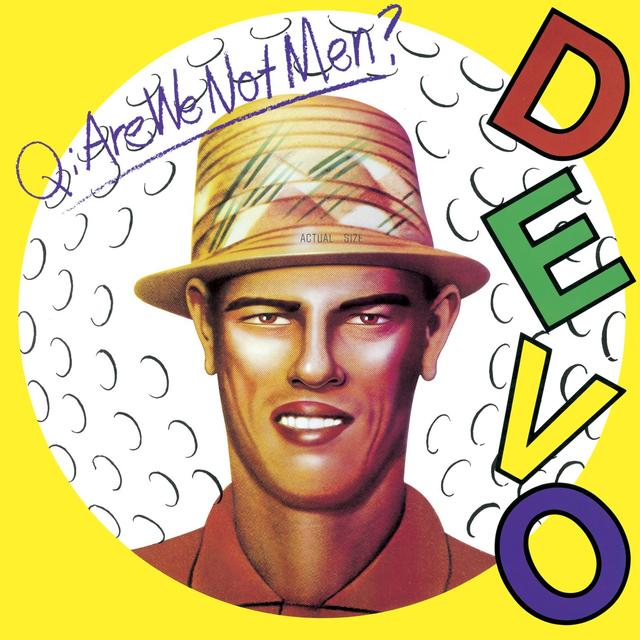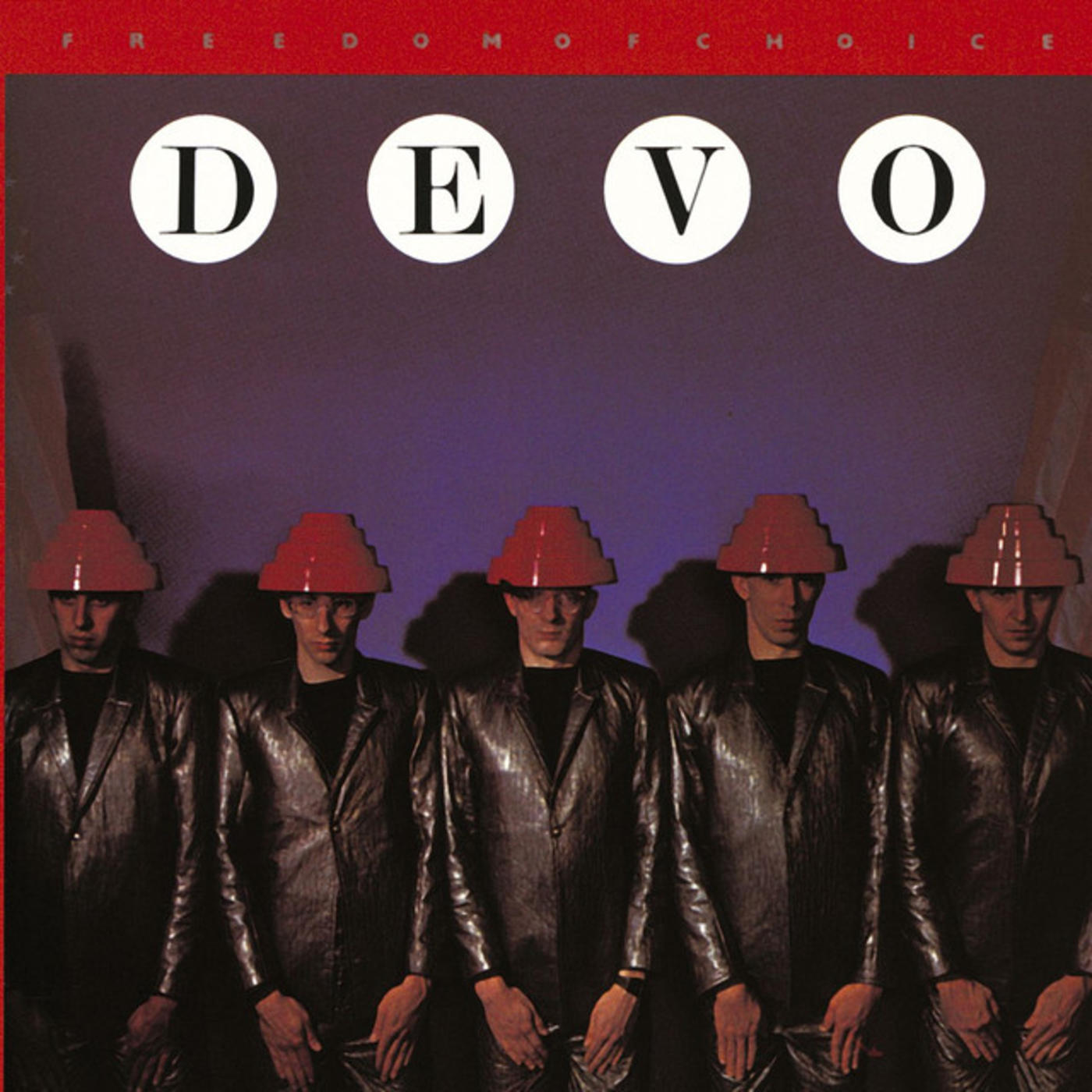Happy Anniversary: Devo, Q: ARE WE NOT MEN? A: WE ARE DEVO!

39 years ago today, Devo released their debut album, an LP which blew the minds of a generation while also introducing them to the concept of De-Evolution.
“This is the band of the future, I’m going to produce them in Tokyo this winter,” proclaimed David Bowie, after seeing Devo’s debut live show in New York, and he wasn’t kidding when he verbally issued this proclamation. He also wasn’t the only one to sufficiently smitten by the band to start talking about wanting to produce them: Brian Eno, Robert Fripp, and Iggy Pop indicated similar desires. In the end, Bowie’s filming schedule on the movie Just a Gigolo caused him to defer the predominant production duties to Eno, though he did pop by on the weekends to contribute as much as possible to the proceedings.
The majority of Q: ARE WE NOT ME? A: WE ARE DEVO! was recorded at Conny Plank’s studio near Cologne, Germany, where the album was also mixed, but two tracks – “Come Back Jonee” and “Shrivel-Up” were laid down at Different Fur, a studio in San Francisco. There were tensions between Devo and Eno in the studio, with the band being severely steadfast in their desire to keep their songs sounding precisely as they did when they initially performed them. Devo did eventually use some of his musical contributions, but only on a handful of tracks.
For as highly regarded as the album is today, Q: ARE WE NOT MEN? A: WE ARE DEVO! was not greeted with universal praise upon its initial release. Rolling Stone wrote that, “for all of its idiosyncrasies, the music here is utterly impersonal,” and Robert Christgau of The Village Voice said, “In small doses it’s as good as novelty music ever gets, and there isn’t a really bad cut on this album. But it leads nowhere.”
Well, actually, no: it leads to the upper reaches of The Village Voice’s Pazz & Jop poll in 1978, Spin’s 50 Most Essential Punk Records, Pitchfork’s top 100 albums of the ‘70s, Rolling Stone’s 500 Greatest Albums of All Time, and 1001 Albums You Must Hear Before You Die.
Take that, Christgau!
For more information, click the buttons below:


